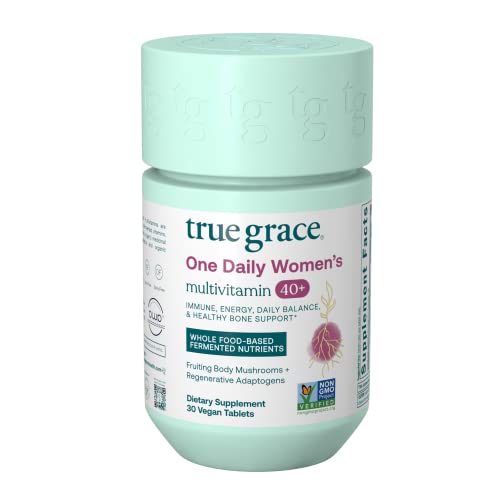
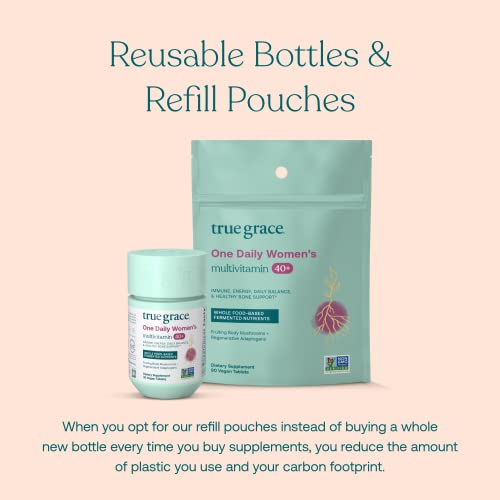
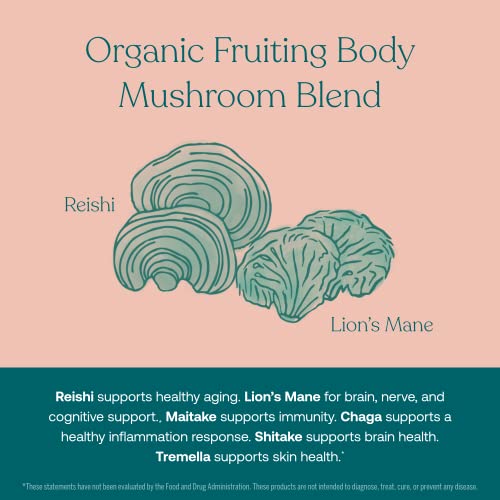
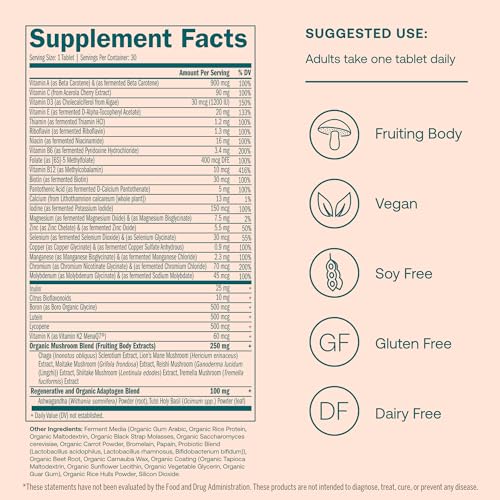
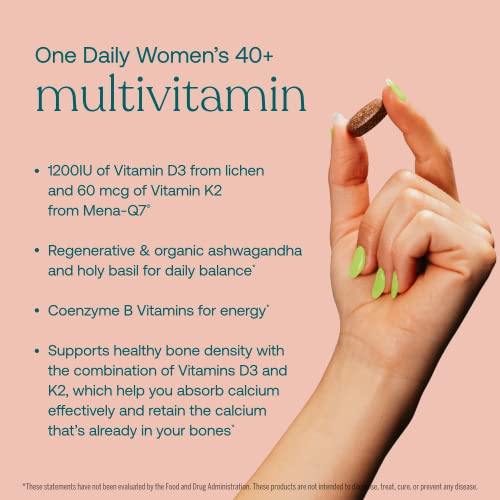
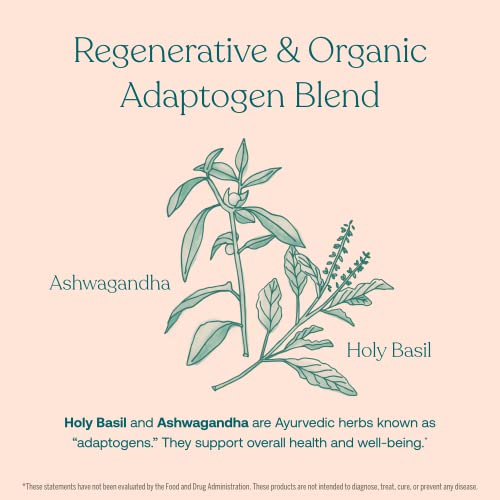
True Grace One Daily Women's Multivitamin 40+ - Energy, Immune & Bone Support - 30 Vegan Tabs


Papain
Medium RiskPapain is a proteolytic enzyme isolated from the papaya fruit, primarily used in cosmetic and personal care products for its ability to break down proteins. It serves functions such as exfoliation and skin softening, contributing to product efficacy in skincare formulations.
Sustai Insights
Papain offers functional benefits as an effective exfoliant and skin softener, potentially enhancing product performance. However, it is associated with high irritation risks for skin, eyes, and lungs, along with a moderate potential for causing allergies. Regulatory restrictions exist for verified products containing papain, reflecting concerns about its health impacts. Environmental risks are minimal, with no significant pollutant or bioaccumulation potential identified. Overall, papain presents a medium risk, and safe usage practices should be followed, with alternatives like less irritating enzymes available for consideration.
Bromelain
Medium RiskBromelain is a mixture of enzymes found in pineapple stems and fruit, primarily functioning as a proteolytic enzyme, which helps in the breakdown of proteins. It is commonly used in dietary supplements and cosmetic formulations for its potential anti-inflammatory and digestive benefits.
Sustai Insights
Bromelain offers functional benefits as a proteolytic enzyme, aiding digestion and reducing inflammation. However, it poses moderate health risks, including potential allergic reactions and high irritation levels for skin and respiratory systems. Environmental concerns are minimal, with no significant pollutant or bioaccumulation risks noted. Regulatory status shows some restrictions on product formulations, indicating a medium risk overall. Safe usage practices are recommended, particularly for sensitive populations, while alternatives such as papain may provide similar benefits with potentially lower risks.
Lactobacillus Acidophilus
Low RiskLactobacillus acidophilus is a probiotic bacterium commonly found in the human gut and fermented foods. It plays a key role in digestion and gut health, often used in dietary supplements and functional foods to promote beneficial gut flora.
Sustai Insights
Lactobacillus acidophilus offers functional benefits by supporting digestive health and balancing intestinal microbiota. It is generally recognized as safe with low health risks, including negligible concerns for cancer, allergies, and reproductive toxicity. Environmentally, it poses minimal risk. Regulatory bodies do not impose restrictions on its use. Overall, it holds a low risk profile, making it a favorable ingredient in health products.
Maltodextrin
Low RiskMaltodextrin is a saccharide material obtained from starch through partial hydrolysis. It is commonly used as a thickener, filler, or preservative in food and cosmetic products due to its ability to enhance texture and stability.
Sustai Insights
Maltodextrin serves as an effective thickener and stabilizer in various products, and it is typically derived from renewable sources. Health risks are minimal, as it poses low concerns for carcinogenicity, allergies, and developmental toxicity. Environmental impacts are also low, with no significant pollutant or bioaccumulation potential. Regulatory bodies do not impose major restrictions on its use. Overall, maltodextrin presents a low-risk profile, making it a widely accepted ingredient in food and cosmetic formulations.
Yeast
Low RiskYeast is a class of microorganisms from the Hemiascomycetes subphylum, widely used in food production and fermentation processes. It functions primarily as a leavening agent in baking and as a fermenting agent in brewing and winemaking. Yeast also plays a role in the production of certain dietary supplements.
Sustai Insights
Yeast serves as an effective leavening agent and contributes to fermentation, enhancing flavor and texture in foods. It is considered low risk regarding health concerns, with minimal associations with carcinogenicity, allergies, or reproductive toxicity. Environmentally, yeast is not a pollutant and does not bioaccumulate. Regulatory bodies, including the FDA, have no specific restrictions on its use. Given the low risk profile, yeast is a safe ingredient; however, individuals with specific allergies should consult health professionals. Alternatives like baking soda or sourdough starters may be considered for specific applications.
Molasses
Low RiskMolasses is a viscous byproduct of sugar extraction from sugarcane or sugar beet. It is used primarily as a sweetener and flavoring agent in various food products. Its rich mineral content, including iron, calcium, and magnesium, contributes to its nutritional value.
Sustai Insights
Molasses serves as a natural sweetener and offers nutritional benefits, being a source of vitamins and minerals. Health risks are minimal, with low concerns regarding carcinogenicity, allergies, and reproductive toxicity. Environmentally, it poses low risks as it is not a pollutant or bioaccumulative. Regulatory bodies have not issued restrictions on its use. Overall, the risk level associated with molasses is considered low, suggesting it is safe for consumption in typical amounts.
Ganoderma Lucidum
Low RiskGanoderma lucidum, commonly known as reishi mushroom, is a medicinal fungus used in traditional medicine. It is often included in supplements and skincare products for its potential health benefits, including immune support and antioxidant properties. The ingredient is noted for its enhanced skin absorption capabilities.
Sustai Insights
Ganoderma lucidum offers functional benefits such as immune support and antioxidant effects, contributing to its popularity in health and wellness products. However, it has been associated with sensitization in some individuals, leading to a low to moderate risk of allergic reactions. Environmentally, it is not considered a pollutant or bioaccumulative. Regulatory bodies have not placed significant restrictions on its use, indicating a low overall risk level. Safe usage practices include monitoring for allergic reactions, and alternatives may include other medicinal fungi like cordyceps or turkey tail, which provide similar benefits with potentially lower sensitization risks.
Tremella Fuciformis (Mushroom) Extract
Low RiskTremella fuciformis (mushroom) extract is derived from the Tremella fuciformis mushroom, commonly known as the snow mushroom. It is primarily used for its hydrating properties in cosmetic formulations, often functioning as a humectant that attracts moisture to the skin.
Sustai Insights
Tremella fuciformis extract offers functional benefits, including effective hydration and skin conditioning. It is sustainably sourced and biodegradable. Health risks are minimal, with low concerns for carcinogenicity, allergies, or irritants. Environmental risks are also low, with no significant pollution potential. Regulatory assessments indicate no restrictions. Overall, it presents a low-risk profile for consumer use.
Lentinus Edodes (Shiitake Mushroom) Extract
Low RiskLentinus edodes extract is derived from shiitake mushrooms, commonly used for its bioactive compounds. It serves various functions in products, particularly in cosmetics and dietary supplements for its antioxidant properties and potential health benefits.
Sustai Insights
Lentinus edodes extract offers functional benefits such as antioxidant activity and potential immune support, derived from its bioactive components. It is sustainably sourced and biodegradable. Health risks are minimal, with low concerns regarding carcinogenicity, allergens, and reproductive toxicity. Environmental impact is negligible, as it does not contribute to pollution or bioaccumulation. Regulatory status is favorable, with no current restrictions noted. Overall, the ingredient is assessed as low risk, making it a suitable choice in formulations.
Lactobacillus Rhamnosus
Low RiskLactobacillus rhamnosus is a type of beneficial bacteria commonly found in fermented foods and probiotics. It is predominantly used for its probiotic properties, supporting gut health and contributing to the balance of intestinal microflora in various health products.
Sustai Insights
Lactobacillus rhamnosus offers functional benefits as a probiotic, promoting digestive health and potentially enhancing immune function. It is considered safe with low concerns for carcinogenicity, allergies, and reproductive toxicity. Regulatory bodies have not imposed restrictions on its use. While not known for environmental hazards, further research on its ecological impact is warranted. Overall, it poses a low risk, and safe usage practices include adhering to recommended dosages. Alternatives include other probiotic strains like Lactobacillus acidophilus.
Acacia Senegal Extract
Low RiskAcacia senegal extract is an extract of the flowering tree Acacia senegal, primarily used in cosmetics for its thickening and emulsifying properties. It is commonly found in formulations to enhance texture and stability, serving as a natural alternative to synthetic agents.
Sustai Insights
Acacia senegal extract offers functional benefits as a natural thickener and emulsifier, supporting product stability while being biodegradable and sustainably sourced. Health risks are minimal, with low concerns for carcinogenicity, allergies, and reproductive toxicity. Environmental impact appears low, with no significant pollution or bioaccumulation noted. Regulatory bodies impose no significant restrictions. Overall, the ingredient presents a low-risk profile with safe usage practices, making it a suitable choice in cosmetic formulations.
Lactobacillus Acidophilus
Low RiskLactobacillus acidophilus is a probiotic bacterium commonly found in the human gut and fermented foods. It plays a key role in digestion and gut health, often used in dietary supplements and functional foods to promote beneficial gut flora.
Sustai Insights
Lactobacillus acidophilus offers functional benefits by supporting digestive health and balancing intestinal microbiota. It is generally recognized as safe with low health risks, including negligible concerns for cancer, allergies, and reproductive toxicity. Environmentally, it poses minimal risk. Regulatory bodies do not impose restrictions on its use. Overall, it holds a low risk profile, making it a favorable ingredient in health products.
Papain
Medium RiskPapain is a proteolytic enzyme isolated from the papaya fruit, primarily used in cosmetic and personal care products for its ability to break down proteins. It serves functions such as exfoliation and skin softening, contributing to product efficacy in skincare formulations.
Sustai Insights
Papain offers functional benefits as an effective exfoliant and skin softener, potentially enhancing product performance. However, it is associated with high irritation risks for skin, eyes, and lungs, along with a moderate potential for causing allergies. Regulatory restrictions exist for verified products containing papain, reflecting concerns about its health impacts. Environmental risks are minimal, with no significant pollutant or bioaccumulation potential identified. Overall, papain presents a medium risk, and safe usage practices should be followed, with alternatives like less irritating enzymes available for consideration.
Maltodextrin
Low RiskMaltodextrin is a saccharide material obtained from starch through partial hydrolysis. It is commonly used as a thickener, filler, or preservative in food and cosmetic products due to its ability to enhance texture and stability.
Sustai Insights
Maltodextrin serves as an effective thickener and stabilizer in various products, and it is typically derived from renewable sources. Health risks are minimal, as it poses low concerns for carcinogenicity, allergies, and developmental toxicity. Environmental impacts are also low, with no significant pollutant or bioaccumulation potential. Regulatory bodies do not impose major restrictions on its use. Overall, maltodextrin presents a low-risk profile, making it a widely accepted ingredient in food and cosmetic formulations.
Yeast
Low RiskYeast is a class of microorganisms from the Hemiascomycetes subphylum, widely used in food production and fermentation processes. It functions primarily as a leavening agent in baking and as a fermenting agent in brewing and winemaking. Yeast also plays a role in the production of certain dietary supplements.
Sustai Insights
Yeast serves as an effective leavening agent and contributes to fermentation, enhancing flavor and texture in foods. It is considered low risk regarding health concerns, with minimal associations with carcinogenicity, allergies, or reproductive toxicity. Environmentally, yeast is not a pollutant and does not bioaccumulate. Regulatory bodies, including the FDA, have no specific restrictions on its use. Given the low risk profile, yeast is a safe ingredient; however, individuals with specific allergies should consult health professionals. Alternatives like baking soda or sourdough starters may be considered for specific applications.
Bromelain
Medium RiskBromelain is a mixture of enzymes found in pineapple stems and fruit, primarily functioning as a proteolytic enzyme, which helps in the breakdown of proteins. It is commonly used in dietary supplements and cosmetic formulations for its potential anti-inflammatory and digestive benefits.
Sustai Insights
Bromelain offers functional benefits as a proteolytic enzyme, aiding digestion and reducing inflammation. However, it poses moderate health risks, including potential allergic reactions and high irritation levels for skin and respiratory systems. Environmental concerns are minimal, with no significant pollutant or bioaccumulation risks noted. Regulatory status shows some restrictions on product formulations, indicating a medium risk overall. Safe usage practices are recommended, particularly for sensitive populations, while alternatives such as papain may provide similar benefits with potentially lower risks.
Molasses
Low RiskMolasses is a viscous byproduct of sugar extraction from sugarcane or sugar beet. It is used primarily as a sweetener and flavoring agent in various food products. Its rich mineral content, including iron, calcium, and magnesium, contributes to its nutritional value.
Sustai Insights
Molasses serves as a natural sweetener and offers nutritional benefits, being a source of vitamins and minerals. Health risks are minimal, with low concerns regarding carcinogenicity, allergies, and reproductive toxicity. Environmentally, it poses low risks as it is not a pollutant or bioaccumulative. Regulatory bodies have not issued restrictions on its use. Overall, the risk level associated with molasses is considered low, suggesting it is safe for consumption in typical amounts.
Ganoderma Lucidum
Low RiskGanoderma lucidum, commonly known as reishi mushroom, is a medicinal fungus used in traditional medicine. It is often included in supplements and skincare products for its potential health benefits, including immune support and antioxidant properties. The ingredient is noted for its enhanced skin absorption capabilities.
Sustai Insights
Ganoderma lucidum offers functional benefits such as immune support and antioxidant effects, contributing to its popularity in health and wellness products. However, it has been associated with sensitization in some individuals, leading to a low to moderate risk of allergic reactions. Environmentally, it is not considered a pollutant or bioaccumulative. Regulatory bodies have not placed significant restrictions on its use, indicating a low overall risk level. Safe usage practices include monitoring for allergic reactions, and alternatives may include other medicinal fungi like cordyceps or turkey tail, which provide similar benefits with potentially lower sensitization risks.
Tremella Fuciformis (Mushroom) Extract
Low RiskTremella fuciformis (mushroom) extract is derived from the Tremella fuciformis mushroom, commonly known as the snow mushroom. It is primarily used for its hydrating properties in cosmetic formulations, often functioning as a humectant that attracts moisture to the skin.
Sustai Insights
Tremella fuciformis extract offers functional benefits, including effective hydration and skin conditioning. It is sustainably sourced and biodegradable. Health risks are minimal, with low concerns for carcinogenicity, allergies, or irritants. Environmental risks are also low, with no significant pollution potential. Regulatory assessments indicate no restrictions. Overall, it presents a low-risk profile for consumer use.
Lentinus Edodes (Shiitake Mushroom) Extract
Low RiskLentinus edodes extract is derived from shiitake mushrooms, commonly used for its bioactive compounds. It serves various functions in products, particularly in cosmetics and dietary supplements for its antioxidant properties and potential health benefits.
Sustai Insights
Lentinus edodes extract offers functional benefits such as antioxidant activity and potential immune support, derived from its bioactive components. It is sustainably sourced and biodegradable. Health risks are minimal, with low concerns regarding carcinogenicity, allergens, and reproductive toxicity. Environmental impact is negligible, as it does not contribute to pollution or bioaccumulation. Regulatory status is favorable, with no current restrictions noted. Overall, the ingredient is assessed as low risk, making it a suitable choice in formulations.
Lactobacillus Rhamnosus
Low RiskLactobacillus rhamnosus is a type of beneficial bacteria commonly found in fermented foods and probiotics. It is predominantly used for its probiotic properties, supporting gut health and contributing to the balance of intestinal microflora in various health products.
Sustai Insights
Lactobacillus rhamnosus offers functional benefits as a probiotic, promoting digestive health and potentially enhancing immune function. It is considered safe with low concerns for carcinogenicity, allergies, and reproductive toxicity. Regulatory bodies have not imposed restrictions on its use. While not known for environmental hazards, further research on its ecological impact is warranted. Overall, it poses a low risk, and safe usage practices include adhering to recommended dosages. Alternatives include other probiotic strains like Lactobacillus acidophilus.
Acacia Senegal Extract
Low RiskAcacia senegal extract is an extract of the flowering tree Acacia senegal, primarily used in cosmetics for its thickening and emulsifying properties. It is commonly found in formulations to enhance texture and stability, serving as a natural alternative to synthetic agents.
Sustai Insights
Acacia senegal extract offers functional benefits as a natural thickener and emulsifier, supporting product stability while being biodegradable and sustainably sourced. Health risks are minimal, with low concerns for carcinogenicity, allergies, and reproductive toxicity. Environmental impact appears low, with no significant pollution or bioaccumulation noted. Regulatory bodies impose no significant restrictions. Overall, the ingredient presents a low-risk profile with safe usage practices, making it a suitable choice in cosmetic formulations.
Discover the True Grace One Daily Women’s Multivitamin 40+, expertly formulated for women over 40 seeking comprehensive health support. Each vegan tablet is rich in fermented minerals, organic adaptogens, and mushrooms, providing targeted nutrients to enhance energy, immune function, and bone health.
- Targeted Nutrients for Women 40+: Crafted with chelated and fermented minerals for optimal absorption, supporting overall health with essential vitamins A, D3, and zinc for immune health.
- Organic Mushroom Blend: Features a blend of certified organic mushrooms like Reishi and Lion’s Mane, promoting heart and brain health while aiding in healthy aging.
- Mind and Body Support: Contains adaptogenic herbs like ashwagandha and holy basil, helping the body cope with stress and supporting well-being as you age.
- Sustainable Packaging: Packaged in reusable bottles made from recycled plastics, with eco-friendly refills that contribute to reducing waste and carbon footprint.
- Commitment to Health and Environment: True Grace is certified Carbon Neutral, ensuring that their products contribute positively to both personal health and the planet.
Subscribe & Save with Sustai
- Best Price Guarantee: Always enjoy the lowest prices on sustainable home essentials.
- No Surprises: We’ll notify you before shipping. No hidden fees, ever.
- You’re in Charge: Change, pause, or cancel your subscription anytime with ease.
- Eco-Friendly Deliveries: Our grouped shipments mean less packaging and lower emissions.
Join us on a sustainable journey. Special offers for a limited time! Prices and promotions may change.
Recommended Products
Discover the True Grace One Daily Women’s Multivitamin 40+, expertly formulated for women over 40 seeking comprehensive health support. Each vegan tablet is rich in fermented minerals, organic adaptogens, and mushrooms, providing targeted nutrients to enhance energy, immune function, and bone health.
- Targeted Nutrients for Women 40+: Crafted with chelated and fermented minerals for optimal absorption, supporting overall health with essential vitamins A, D3, and zinc for immune health.
- Organic Mushroom Blend: Features a blend of certified organic mushrooms like Reishi and Lion’s Mane, promoting heart and brain health while aiding in healthy aging.
- Mind and Body Support: Contains adaptogenic herbs like ashwagandha and holy basil, helping the body cope with stress and supporting well-being as you age.
- Sustainable Packaging: Packaged in reusable bottles made from recycled plastics, with eco-friendly refills that contribute to reducing waste and carbon footprint.
- Commitment to Health and Environment: True Grace is certified Carbon Neutral, ensuring that their products contribute positively to both personal health and the planet.

You can have at most 2 Sustainable Steals products in your cart
Customer Reviews
Customers’ View
Customers appreciate the energy-boosting properties and the thoughtfully formulated nutrient content of True Grace One Daily Women’s Multivitamin 40+. Many users report feeling more alert and healthy, with some noting improvements in mood and immune support. The product is often praised for being easy to swallow, with a smooth texture and no unpleasant aftertaste. Additionally, the commitment to sustainability through eco-friendly packaging and a focus on regenerative nutrition resonates with environmentally conscious consumers. However, some customers expressed dissatisfaction with the size of the tablets and a few noted concerns about the quality compared to store-bought versions. Overall, users find the multivitamin effective and aligned with their health-focused lifestyle.
AI-generated from the text of customer reviewsThis product is rated 4.6 of 5.0 stars.
It has received 11 reviews.




